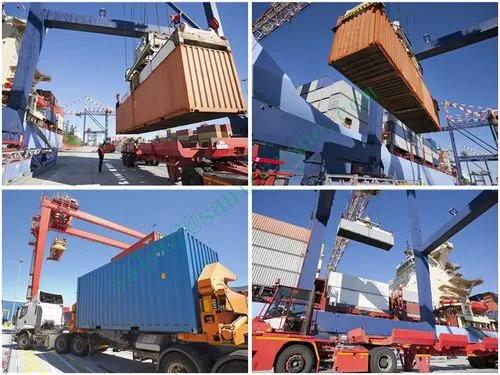Professional Container Loading for Customers Exporting to Nigeria
As an agent export for several years, I have handled various types of goods from clothing to electronics. However, the most common items I have encountered that require professional container loading are auto parts. Shipping these fragile items to Nigeria can be haphazard, but with proper loading techniques, customers can avoid damages and delays.

What is container loading?
Container loading is the process of arranging goods inside a shipping container to optimize space utilization and ensure the safety of the products during transit. The loading process involves several steps, including packing, palletizing, securing, and labeling. Done correctly, it minimizes cargo damage, reduces transportation costs and time, and facilitates the inspection process.
Professional container loading for customers
Professional container loading services are offered by many exporters and freight forwarders to ensure quality handling of merchandise. These services include comprehensive packing, palletizing or crating, lashing, and labeling to meet specific shipping needs. Loading goods in a container requires skill and experience, and only trained personnel can do it effectively.
Advantages of professional container loading
Professional container loading provides several benefits. Here are some reasons why you should use this service for your export to Nigeria:
1. Minimize potential damage
Loading cargo into a container requires careful handling to ensure that products don't shift during transit. Professional container loading helps avoid damaging goods by arranging their position, packing them securely, and cushioning any fragile items to prevent breakage.
2. Optimize space utilization
Proper container loading helps maximize space utilization in the container, which reduces transportation costs and carbon footprint. Professional container loading teams optimize container space by arranging goods systematically and using pallets or crates that fit the shape and size of the products.
3. Facilitate inspection
Customs officials inspect containers before departure to ensure compliance with regulatory requirements. Professional container loading ensures that the products are carefully packed, labeled, and secured to facilitate the inspection process. This helps in reducing potential delays in customs clearance.
Exporting to Nigeria
Nigeria has a rapidly growing economy with many opportunities for businesses to expand. Many international operators choose to export to Nigeria due to its high demand for goods. However, exporting to Nigeria comes with a unique set of challenges, including:
• Limited transportation infrastructure
• High import duty rates
• Customs clearance delays
• Inadequate warehousing facilities
Container loading techniques for exporting auto parts to Nigeria
When exporting auto parts to Nigeria, proper container loading techniques are crucial to avoid damage to the cargo. Here are some tips:
1. Palletize each auto part separately. Palletizing makes it easier to load and unload goods and ensures that precarious parts are stabilized with each other, preventing their damage by contact with the floor of the container.
2. Choose the right size of the pallet to optimize space utilization. Using appropriately sized pallets ensures that the container is not underutilized or overloaded.
3. Use padding to secure the auto parts. Packing fragile items like mirrors and windshields with adequate padding prevents cracking.
4. Use straps or chains to hold the pallets in place. Securing the pallets ensures that they do not shift during transit, minimizing the risk of damage to the cargo.
Conclusion
Professional container loading is an essential service for ensuring safe export of goods, especially auto parts. Working with an experienced agent export is essential to ensure proper container loading technique. When exporting to Nigeria, different challenges might arise, but proper container loading techniques like palletizing and securing products can minimize cargo damage, reduce transportation costs and transit time, and facilitate customs clearance, thereby making the overall process more efficient.
